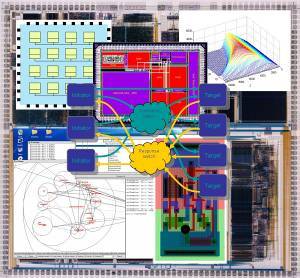
Exploiting Concurrency in a General-Purpose One-Instruction Computer Architecture
Chris Emmons
Abstract
Computer performance is suffering greatly from diminishing returns as the increasing cost of implementing complex hardware optimizations and of increasing clock frequency no longer yields the gains in computational ability and power efficiency consumers demand. Notable products including a generation of Intel Pentium 4 processors have been cancelled as a result. This sudden hiccup in an historically predictable performance road map has inspired research and industrial communities to investigate architectures, some rather unorthodox, that complete work more quickly and more efficiently.
One such computer architecture under development, Fleet, exposes fine-grain instruction level concurrency, addresses the growing costs of on-chip communications, and promotes simplicity in the underlying hardware design. This one-instruction computer transports data using simple move operations. The globally-asynchronous architecture promotes high modularity allowing specialized configurations of the architecture to be generated quickly with low hardware and software complexity.
The Armada architecture presented in this thesis expands on Fleet by introducing constructs that exploit thread-level concurrency. The proposals herein aim to increase the performance efficiency of Fleet and other communication-centric architectures. Trade-offs between software and hardware complexity and between the static and dynamic division of labor are investigated through the implementation and study of an Armada microarchitecture and an Armada compiler created for this research. This thesis explores the merits and pitfalls of this unique architecture as the basis for general-purpose computers for the future.
The thesis is available as PDF (2.6MB).

